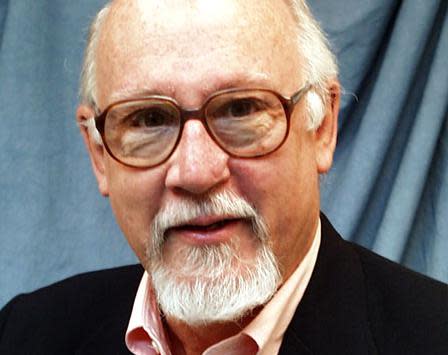Readers will still delight in Eugene Walter's 'The Untidy Pilgrim' | DON NOBLE
Every once in a while in this space, I re-read an Alabama classic, to have that pleasure once again.
And to see how it holds up. “The Keepers of the House” and “Forrest Gump” and many others have held up very well.
More: Debut novel deals with Siberia, old Russian faith, geology, love, communism | DON NOBLE
Picking up “The Untidy Pilgrim,” now 70 years since its original publication, for a re-read, I was chagrined to realize I had never, in fact, read it before. I only thought I had, probably because the first few lines are as well known among Alabamians as the introduction to “A Tale of Two Cities.”
“Down in Mobile they’re all crazy, because the Gulf Coast is the kingdom of monkeys, the land of clowns, ghosts and musicians, and Mobile is sweet lunacy’s county seat.”
Now I have read it and it is delightful.
Eugene Walter of Mobile, after serving in World War II in the Aleutian (Andreanof) Islands and a spell in New York City, moved to Paris. As he explained it, before he left, he turned in the first few chapters and was in France when he learned he had won the Lippincott Fiction Prize, so he finished the novel and sent it back.
These facts we knew. I had not known, however, that the prize committee was Jacques Barzun, Diana Trilling and Bernard DeVoto, three of the most distinguished critics of American literature, ever.
I suspect they were tired of what Walter would call ”the gloom and doom Southern novel,” the novel of Erskine Caldwell or, at its best, William Faulkner, full of poverty, rickets and despair.
“The Untidy Pilgrim” is none of that.
Probably around 1950, a young man from upstate, Persepolis, certainly Demopolis, moves to Mobile to begin his life. We never learn his name.
He rooms with one old lady and in the course of things interacts with a number of other old ladies, each eccentric in her own way.
Our hero works in a bank, and means to be reading law in the evenings, but Mobile is too exciting a place for that. There are picnics in the parks and beer joints down at the waterfront. After one Saturday night our hero wakes up with his “teeth all wearing cashmere sweaters.”
He makes the acquaintance of a talented and odd painter, Kosta, who is deep in grief over the death of his poodle Baudauer, and keeps painting the dead dog’s portrait, sometime hidden in the landscape like “Where’s Waldo.”
Our narrator’s cousin, the beautiful, not merely handsome, but beautiful Perrin comes to town and is so sarcastic and irritating that finally our normally pacific hero punches him in the face and breaks his nose ― and we’re glad.
Our hero has a love affair, and the woman, Philine, gorgeous, with jet black hair, is irresistible and untrustworthy.
Several scenes are set in Bayou Claire (Bayou le Batre), at the estate of uncle Acis, another marvelous eccentric — the novel is full of them.
Eugene Walter used to say he fought dailiness — the tedium of the everyday. “Some days I feed dates to the squirrels to see their reaction,” he would say.
Yes, he did, but more importantly, he practiced delight in the daily — taught us to pay attention. The everyday, if properly seen, is extraordinary, full of marvels, joy, beauty.
Eugene used to complain that his name was misspoken as Walters, plural, and would insist “I am singular.”
Yes, he certainly was.

Don Noble’s newest book is Alabama Noir, a collection of original stories by Winston Groom, Ace Atkins, Carolyn Haines, Brad Watson, and eleven other Alabama authors.
“The Untidy Pilgrim”
Author: Eugene Walter, with a new Introduction by Katherine Clark
Publisher: The University of Alabama Press, Deep South Books; reissue from J. B. Lippincott, New York, 1953
Pages: 253
Price: $18.95 (Paper)
This article originally appeared on The Tuscaloosa News: Re-examining an Alabama classic by Eugene Walter | DON NOBLE
